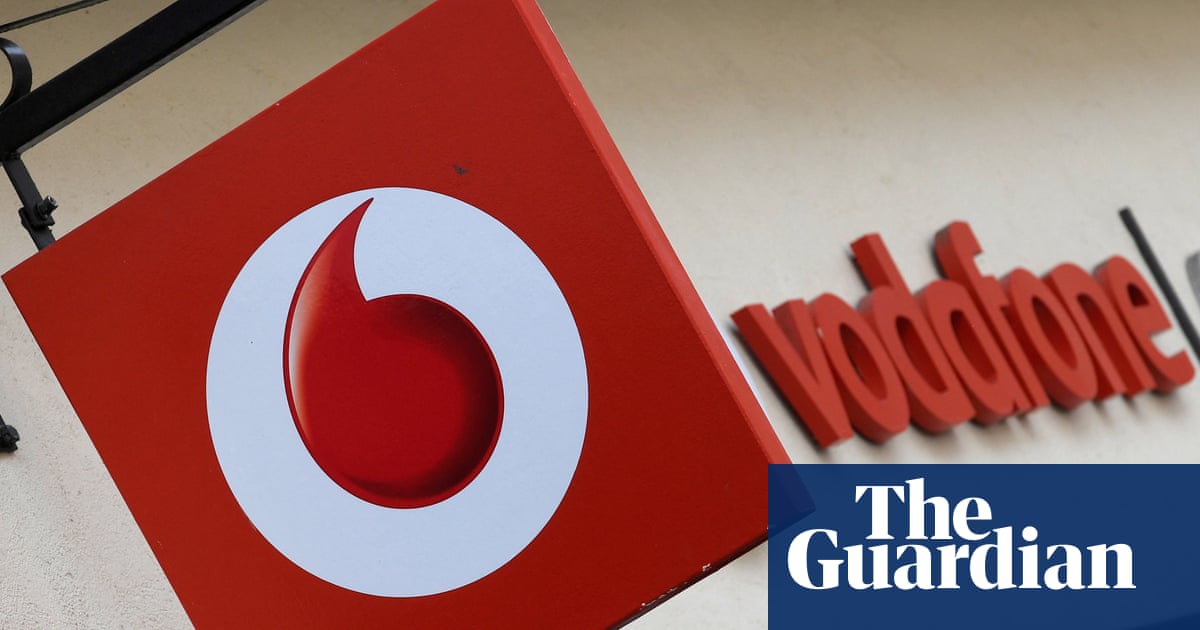Vodafone-Three merger: tens of millions could face higher bills, says UK watchdog

A proposed merger between the telecoms companies Vodafone and Three in the UK could lead to higher mobile bills for tens of millions of mobile customers, the competition watchdog has warned.
Announcing the provisional findings of its investigation into the deal, the Competition and Markets Authority (CMA) said it was particularly concerned about the effects on those customers least able to afford mobile services.
The CMA said the deal would cause a “substantial lessening” of competition across retail and wholesale mobile markets, and has called for assurances from both firms before a merger can be approved. A final decision is expected by 7 December.
In a joint statement, Vodafone and Three hit back at the regulator, saying they disagreed with a number of the CMA’s findings and said a merger would fix the country’s “dysfunctional mobile market” and “unleash more competition and investment”.
Margherita Della Valle, the chief executive of Vodafone, said: “Our merger is a catalyst for change. It’s time to take off the handbrake on the country’s connectivity and build the world-class infrastructure the country deserves. We are offering a self-funded plan to propel economic growth and address the UK’s digital divide.”
She rejected the CMA’s argument that the deal could lead to higher prices, insisting that there are no plans to change pricing strategies. “We do not see the possibility of pricing increasing going forward,” she said.
Della Valle noted that the CMA’s decision was not final and said Vodafone was looking forward to working with the regulator to get final approval
Robert Finnegan, the CEO of Three UK, said that the deal would bring “best in class 5G” to the UK.
The CMA’s provisional findings come after a five-month investigation into the deal, which would create the largest mobile operator in the UK, with more than 27 million customers, leapfrogging EE, owned by BT, and Virgin Media O2, owned by Spain’s Telefónica and the US-listed company Liberty Global.
The CMA said on Friday it would lead to price rises for its customers but could also result in customers getting reduced services such as smaller data packages in their contracts.
The report also raised concerns that any merger would negatively affect the wholesale market, and mobile virtual network operators (MVNOs) such as Lebara, Lyca Mobile and Sky Mobile, which rely on these operators to run their own services.
The deal would reduce the number of UK network operators from four to three, meaning these MVNOs would be unable to secure the most competitive terms, affecting the deals they could offer to customers.
Talks between Vodafone and Hutchinson CK, the owner of Three, have been going on since last autumn and include a pledge to invest £11bn in the UK over the next 10 years, including significant investment in the networks.
after newsletter promotion
Vodafone and Three are two of the four main network operators in the UK, alongside BT/EE and Virgin Media O2.
The CMA did say that bringing both networks under one operator could improve the quality of mobile networks and accelerate the deployment of 5G networks and services across the UK. However, it felt that these claims were overstated and a merged group would not necessarily have the incentive to follow through on the investments.
It has now put forward a number of remedies for Three and Vodafone to improve the offer and lessen its impact on competition. This would include legally binding commitments to ensure it carries out its investments, while also implementing measures to protect retail and wholesale customers.
Three and Vodafone will be given time to respond and offer remedies, with a final decision expected by 7 December.
The regulator said: “The CMA will retain the option to prohibit the merger should it conclude that other remedy options will not address its competition concerns effectively.”
The two providers are now the third- and fourth-largest telecoms networks, and the deal would initially result in Vodafone taking a 51% stake in the company, with Hutchinson taking 49%. Vodafone would also have an option to buy Hutchinson’s stake three years after completion.
Related
Why investing in women is a vital next step for…
Get Nadine White's Race Report newsletter for a fresh perspective on the week's newsGet our free newsletter from The Independent's Race CorrespondentGet our fre
Business secretary signals major shift on electric car policy to…
In a determined effort to retain Nissan’s manufacturing presence in Britain, Business Secretary Jonathan Reynolds has vowed to implement “substantial c
Joint Statement: Business Secretary and Fujitsu Services Ltd
Business and Trade Secretary Jonathan Reynolds today (Friday 7 March) met chiefs for Fujitsu in Tokyo to begin talks over the cost of redress for victims of th
UK foreign secretary backs multilateral defence funding for Europe
UK foreign secretary David Lammy has said that a new multilateral fund will be needed to secure Europe’s defence as he confirmed that Britain is “open to”













